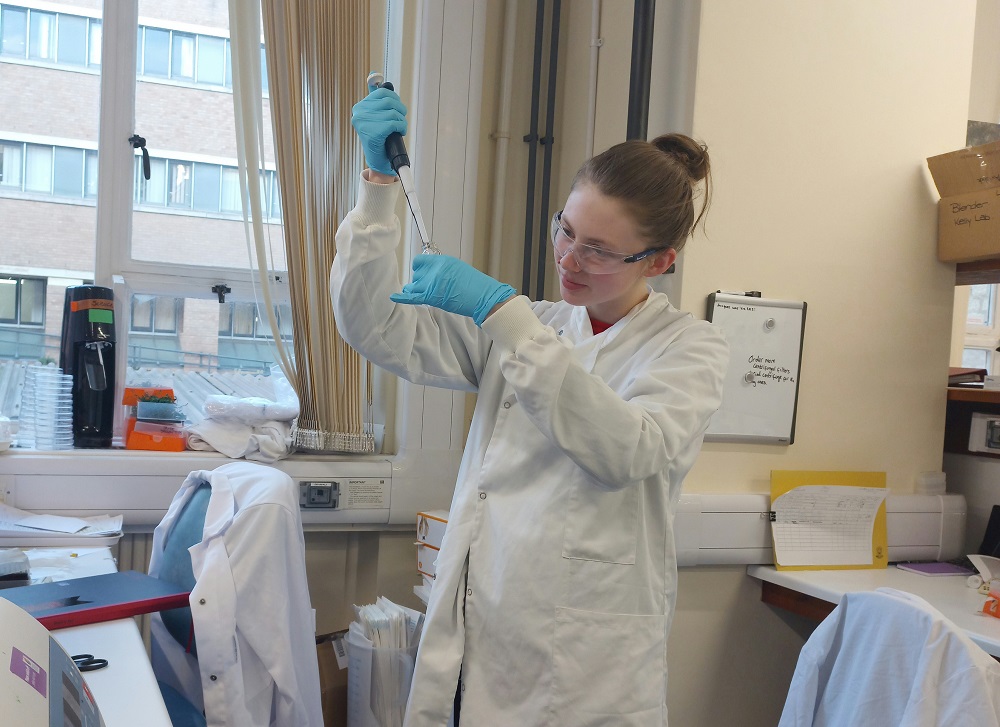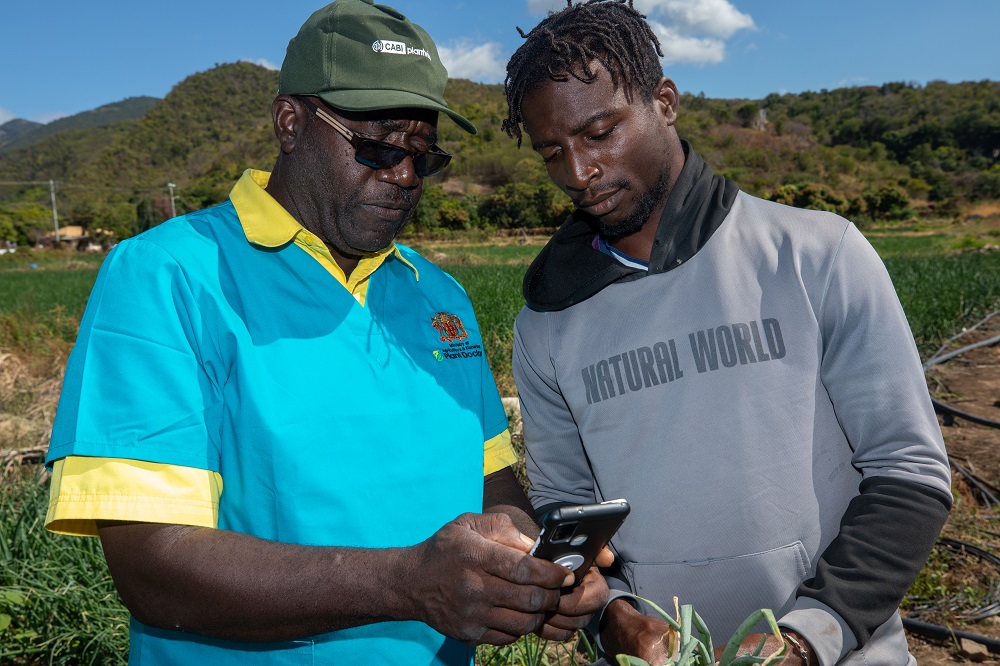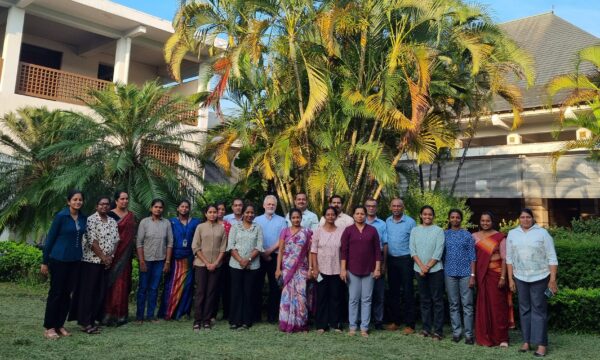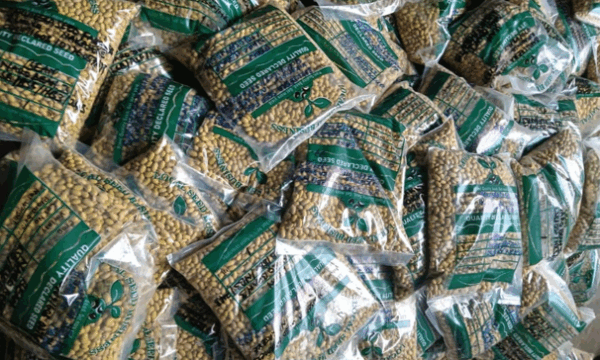
Last year, I had the pleasure of working on a project for Plantwise as part of my university course, writes Isabel Williams – a Master’s student in the Department of Biology at The University of Oxford. Myself and five other students – Amy Barnes, Rosario Bonnie Evans Pena, Mairi Franklin, Zac Lumley and Mary Woodward – were given a brief, and several months to deliver on it.
Our aim
The Plantwise Online Management System (POMS) tool stores clinic data from across the globe. These clinics operate in a similar way to human clinics. Farmers have a problem with their crop, and plant doctors trained by the Plantwise programme give recommendations on how to manage the issue. Data from each case is recorded on a report consisting of check boxes and free text entry fields, before being uploaded onto the POMS database.
Consequently, huge amounts of data can be collected internationally – such as the clinic location, crop affected, plant doctor diagnosis, recommendations given by the plant doctor. My group was given access to a small part of this database to analyse, consisting of 1,080 entries from over six countries.
We were tasked with investigating whether recommendations written by plant doctors on each report box matched the “Recommendation Type” box they had ticked. For instance, if a plant doctor had written “Observe crop for signs of disease and apply carbendazim,” we would expect the “Fungicide” and “Monitoring” check boxes to be selected.
Comparison of our selections
My group began by speaking with Dr Phil Taylor from CABI about each recommendation type. After some more research, discussion, and poring over resources made by Plantwise, we decided which interventions and treatments fell into each recommendation category. Based on this, we came up with definitions for each recommendation type.
We expected plant doctors to have a similar definition for each recommendation type, as they are trained by Plantwise using similar resources. To see whether our understanding of recommendations matched those of the plant doctors’, we compared which checkboxes we had selected with the boxes the plant doctors had selected. This was completed for all 1080 entries, without seeing the plant doctors’ answers beforehand.
Plant doctors consistently classify recommendations
Our statistical analysis suggested good overall agreement between our classifications and plant doctor classifications, with a few notable exceptions. For instance, there was a large difference between our classification of “Botanical” and “Other”, and plant doctors’ classification. Surprisingly, across the entire dataset, not one plant doctor had selected the “Botanical” checkbox. This suggested that plant doctors were unsure of what fell under the “Botanical” category.
Secondly, there were also differences in classifications correlated with region. For example, for data collected from a region in Africa, we had selected the “Biological” check box in almost 100 cases. However, plant doctors only selected this checkbox in approximately 10 cases.
Clearer definition for recommendation types are needed

Our findings suggested that whilst plant doctors are generally consistent in filling out the report’s checkboxes, clear and standardized definitions were required to reduce discrepancies. To solve this, we produced a handbook for Plantwise to use in plant doctor training, containing definitions for each recommendation type, examples, useful visual aids, and other guidance.
Developing smarter ways to analyse data
In addition to the teaching resource, we also produced a text-mining algorithm for Plantwise to adapt and use in future analyses of POMS data. This algorithm would search through the free-text entry boxes for specific keywords, identified by my group during our manual classifications, and classify each case into one or multiple recommendation types. This would allow Plantwise to reduce the amount of time spent on manual data entry, and could be utilised to analyse larger datasets.
Benefitting plant doctors and farmers
To extract useful information from the POMS system in order to help plant doctors and farmers, checkboxes must be filled out consistently.
If this is achieved, employees at Plantwise can analyse the data with confidence, and gain an insight into the issues facing farmers in different regions. After this analysis, Plantwise can contact plant doctors and share their findings to help them make informed diagnoses and recommendations. For example, the data from POMS could suggest that the fungal rice blast disease is new to a country, but is being treated effectively with the fungicides difenoconazole and azoxystrobin. Plant doctors in the neighbouring countries could then be informed of this by Plantwise, giving them a head start in preparing for cases of rice blast.
Additionally, analysis of the POMS database could identify instances where prohibited pesticides are being recommended. Representatives from Plantwise could then work with these plant doctors to find alternative solutions.
However, if the information in POMS is not reliably and consistently filled out, then this analysis may lead to inaccurate conclusions, and the information relayed onto plant doctors may not be beneficial.
Conclusions
We hope that our delivered findings and products will be of use to Plantwise in their effort to increase connectivity and flow of information. If everyone is on the same page, then we can all communicate in a clearer and more useful way, enhancing our ability to help one another. Our team of students understood this and worked together to help achieve this goal.
Additional information
Main image: Isabel Williams – a Master’s student in the Department of Biology at The University of Oxford (Credit: University of Oxford).
PlantwisePlus
Find out more about PlantwisePlus here.
Related News & Blogs
CABI Academy supports Vietnamese universities in training the next generation of plant health professionals
Plant health lies at the centre of food security and sustainable agriculture. In Vietnam, as in many countries, preparing the next generation of plant specialists with the latest knowledge and practical skills is essential to achieving this goal. Under…
7 July 2025




